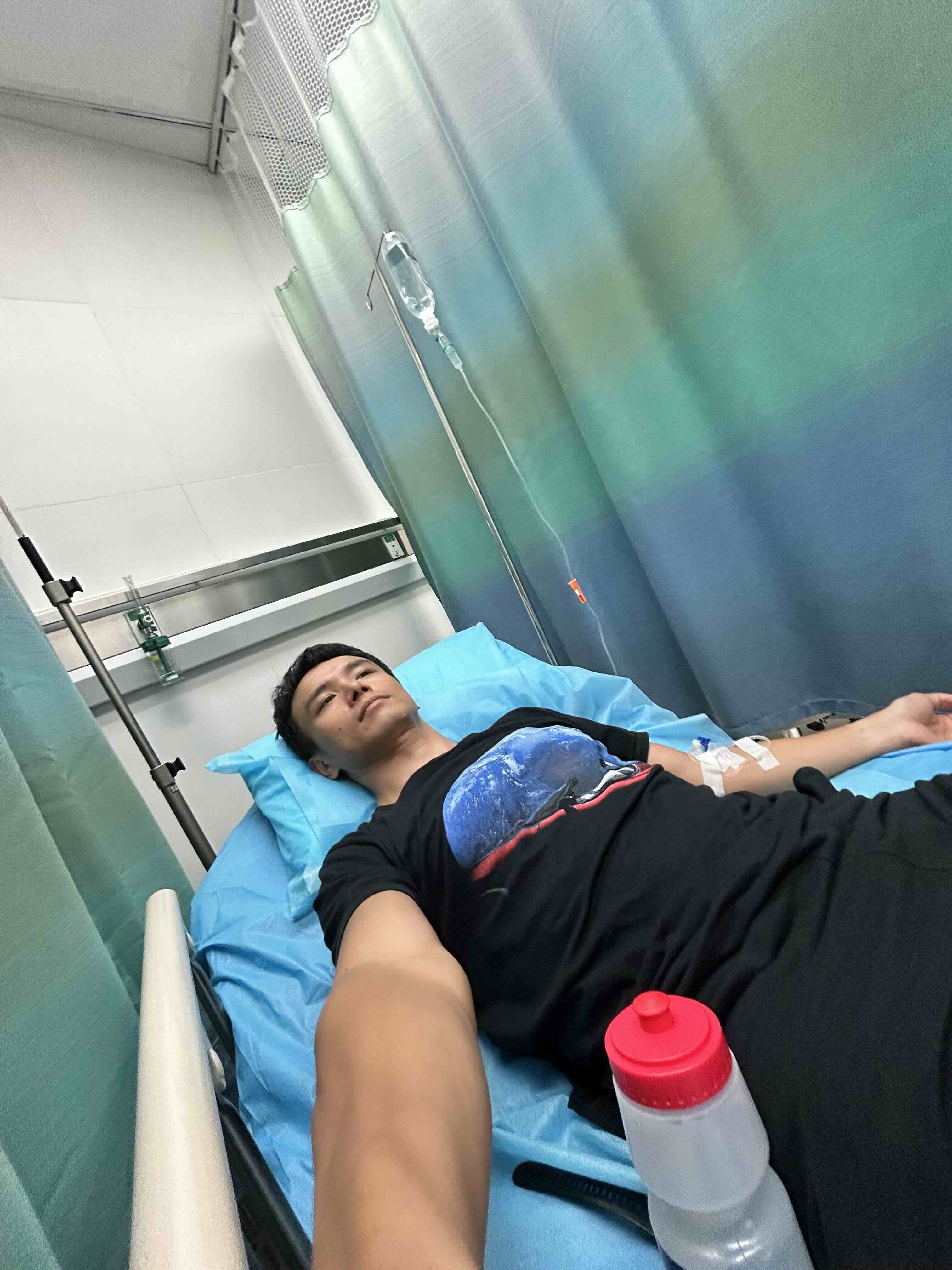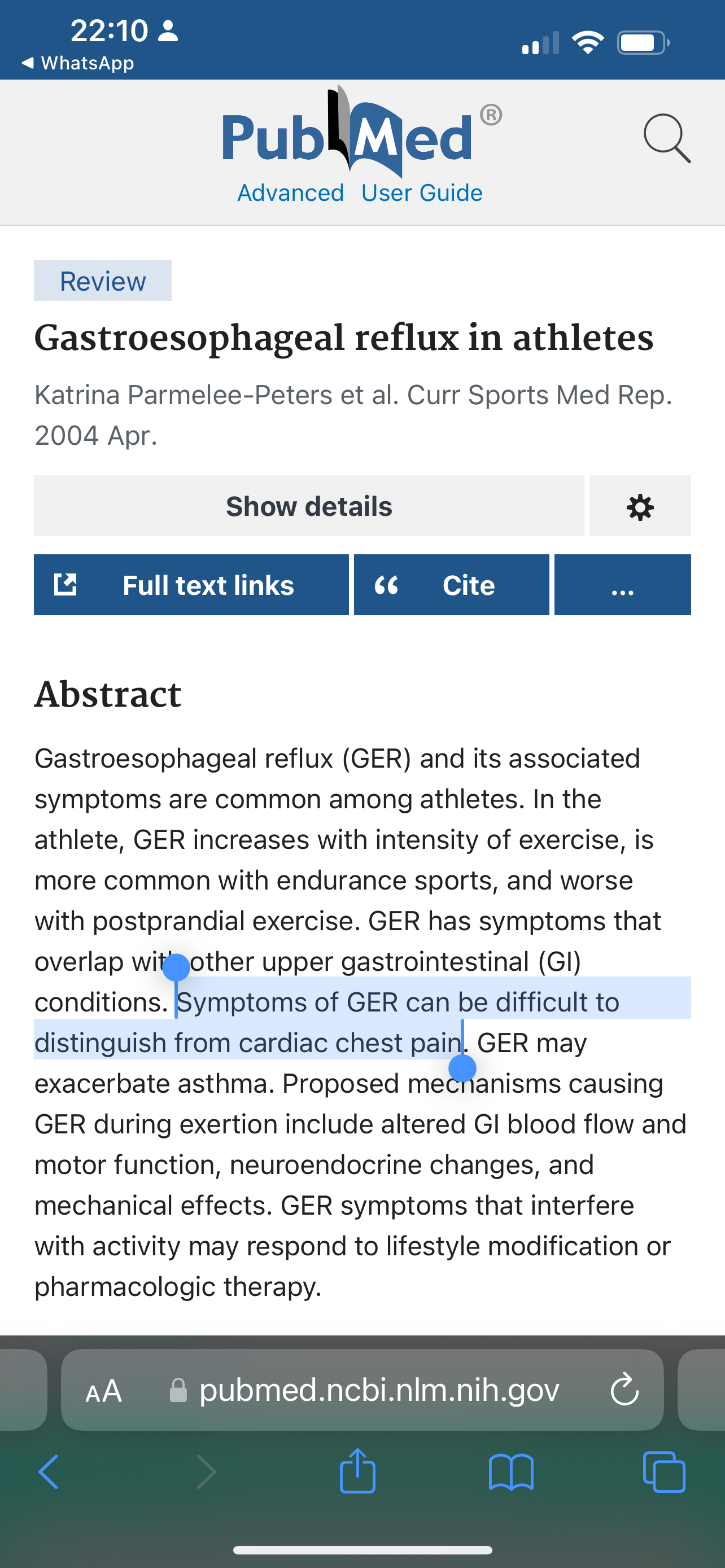Sometime close to 5 pm, I had a banana, grabbed an energy bar, and changed into my bike shorts to get ready for a bike ride. I started feeling upper abdominal pain, then chest pain, close to my heart. It wasn’t easy to breathe. I soon booked a grab to go to the ER.

I thought I was in the best shape of my life, yet here I was, lying on the hospital bed. My wife rushed to meet me at the ER. I’m so grateful that she came by. She fired a bunch of questions at the doctor while I was trying to describe anything related to why I may feel the pain I had. The pain was probably at 7/10. It came around when I was hungry and was trying to rush eating for an exercise.

My wife, family members, and friends assumed I had been overtraining. I don’t want to downplay that risk, but I don’t think it’s true that I overtrain. I’m still following a low-volume plan for Ironman training, allowing me to push a little more sometimes. I still have time for family, work, and sleep. I don’t have muscle soreness that causes difficulty getting around. The doctors were impressed that my resting heart rate was 45 bpm. They said if I’m doing what I’m doing with endurance sports, it’s unlikely I have cardiovascular problems. It’s not a heart attack. The doctor said it could be heartburn instead. Today, I learned about GERD.
Still, to be sure, we did a bunch of checks, including an ECG, ultrasound, and blood tests for heart attacks (Troponin T POC), liver issues (Bilirubin, SGPT, and SGOP enzymes), kidney (Creatinine), and sodium, potassium and vitamin D levels. My liver’s numbers are off by 2x (SGOP 102.10 U/L instead of expected 10-50 in males; SGPT 54.50 U/L instead of 0-41 in males, and 0.55 mg/dl total Bilirubin instead of healthy range 0.3 - 1.2). It may be related to my recent intake of energy gels, energy bars, vitamin effervescence, and protein to test increased volumes and train my stomach. I should cut down on that. My heart has a back-flowing problem due to a valve issue. I already know that. In 2019, two heart doctors confirmed, “Yeah, you’re probably right,” and my wife asked, “This means he shouldn’t run marathons, right?” That year, a doctor who runs marathons looked at my scans and said, “It’s probably OK.” That changed my life!
Mild mitral regurgitation is noted, which means a slight backflow of blood from the left ventricle into the left atrium.
It’s worth noting my heart condition as above. It could make sense that sometimes I have slight dizziness. I should also remember to monitor every year. It’s also worth paying extra attention to hydration and electrolytes to avoid additional stress on the heart during long endurance events.
I spent a few hours at the ER. It cost me an equivalence of 4 pairs of running shoes for the hospital bill. Ouch. Two close friends stopped by. We had a wonderful dinner afterward. When I got back, I learned more about heartburn due to stomach pain. It’s not clear what I went through today, but it’s a good reminder of how much we don’t know about our own bodies, and I should keep learning how to face issues. I’m lucky I had loved ones and a good clinic nearby. Perhaps I could be more composed and figure out the situation, or not. My brain couldn’t function well when the pain took over my body then. I can only think about all the little nutrition and habits I can tweak to prevent heartburn-like symptoms again. If it happened during a race, that’d be very scary.
Based on my research after this experience, here’s a helpful YouTube video of the exercises I can use the next time I suffer the same pain.